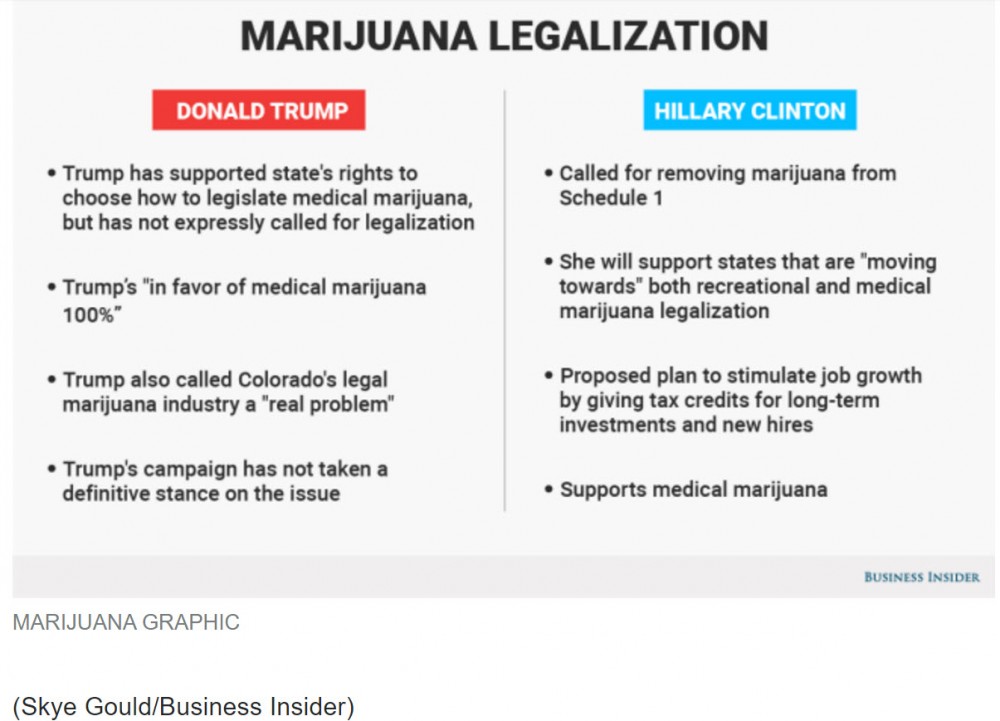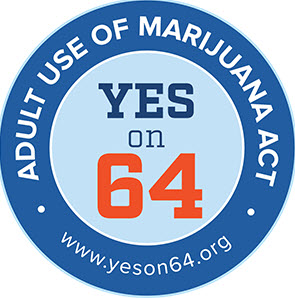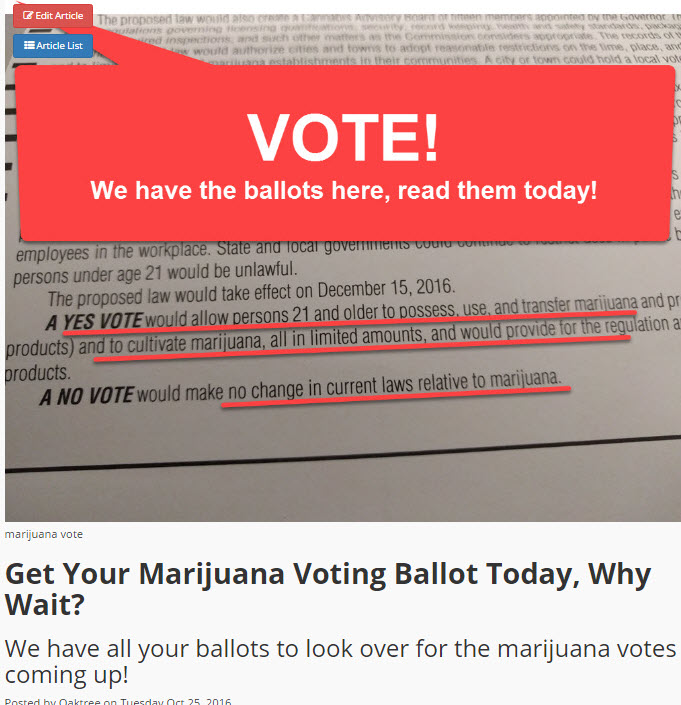And The Winner Is… Cannabis

With less than a week till the elections, America’s pro-cannabis industry waits with bated breath about the outcome and what this could mean for legalization. Legal cannabis sales can easily exceed $22 billion by 2020 and for states who need the cash, this kind of revenue will be helpful.
Voters in California, Maine, Arizona, Nevada and Massachusetts will decide on legalizing recreational cannabis while voters in Florida, Arkansas, North Dakota and Montana will decide on legalizing medical marijuana. Many voters think that cannabis legalization will have a high chance this election because of the changing perceptions over the last few years.
“It's well established that the majority of Americans now believe that the responsible use of marijuana by adults should not be a criminal offense," says Paul Armetano of the National Organization for the Reform of Marijuana Laws (NORML). In mid-October, 2 national surveys were released. According to the Pew Research Center, 57% of American adults think that cannabis should already be legalized. This is a stark difference from a decade ago when 60% of Americans were opposed to the idea. The Gallup Poll also shows that 60% of the country favors legalizing cannabis, which is a record number ever in their surveys. When Washington and Colorado were the first states to legalize recreational use of the plant back in 2013, this resulted in a pivotal change in perceptions and more people became more supportive than ever for supporting legal cannabis.

Record-Breaking Tax Revenue Figures
A recent report from the Drug Policy Alliance shows that everything is well in Colorado, Alaska, Washington, Washington DC, and Oregon. The incidence of marijuana-related arrests has decreased, traffic fatalities are stable, and the number of young kids smoking cannabis hasn’t seen a significant increase.

However, it’s been hard to deny one of the most important contributions of a legal cannabis economy: a high tax revenue. A recent ArcView Market Research and New Frontier report says that legal cannabis sales grew to $5.7 billion in 2015, an increase from the previous year’s $4.6 billion. Recreational cannabis sales also increased to $1.2 billion from 2014’s $374 million.
Even stronger sales are projected for the end of this year. According to Troy Dayton who heads the ArcView Group, “Legalization of cannabis is one of the greatest business opportunities of our time and it's still early enough to see huge growth.”
Legal cannabis has also helped jobs grow like weeds all over the country, giving more people opportunities to earn greens and put food on the table. “We're seeing a massive transformation from an illicit economy worth tens of billions of dollars into a legal economy that will probably be worth even more than that,” says Ethan Nadelmann, Drug Policy Alliance’s executive director. "Legalizing marijuana, taxing and regulating it, is not going to solve a state's budget problems. It's not a panacea, but it definitely makes a significant contribution," he adds.

California: State of the Leaf
Among all states with cannabis on the ballot, California is being watched most closely. Medical use of cannabis is already legal in Golden State but if Prop 64 is approved, adults will be able to grow cannabis at home and recreational shops can be established. The pro-cannabis community believes that should Prop64 be passed (and people think that it likely will), it will put pressure on other states as well as Congress to legalize recreational use and purchase of cannabis.
According to Gallup, “"If recreational marijuana use becomes legal in California this year, many other states will likely follow, because the Golden State often sets political trends for the rest of the U.S."
Taylor West of the National Cannabis Industry Association thinks that this year’s elections will be pivotal in adding pressure on Congress, so much so that it will be almost impossible for them to ignore the green issue. “If all nine initiatives were to pass, we'd have approximately 62 percent of the US population living in a state where medical or adult-use cannabis access is legal. That's huge," West says.
Banking Issues
West also hopes that eventually the government will allow cannabusinesses to enjoy the same banking services that other industries do. Cannabis businesses still can’t use banks and work on a cash basis because it’s still illegal at the federal level. Cash businesses pose severe security threats for dispensaries and similar retail businesses because it makes them more vulnerable to robbery, makes it difficult to track taxes, and makes it more challenging for managing employee salaries.
OTHER STORIES YOU MAY ENJOY...

GET YOUR MARIJUANA BALLOT TODAY, CLICK HERE..
OR...

VOTE CANNABIS FOR MEDICINE AND RECREATIONAL, CLICK HERE..






